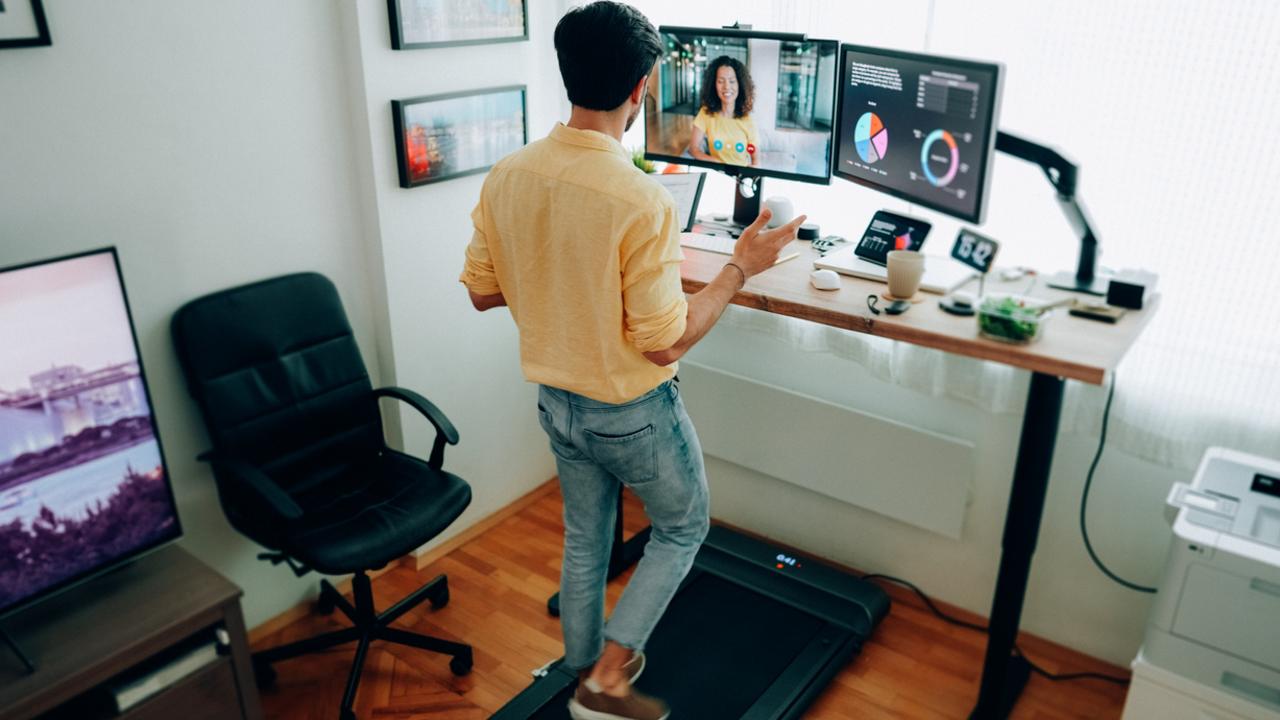Major company shares major WFH findings
A global company has shared their groundbreaking research in a new report that proves wfh is just as good as working in an office.
A global company has shared groundbreaking findings that could prove working from home is better for both employers and employees after all.
Software company Atlassian released the results of how allowing their employees to work from home has impacted the success of the business.
Astoundingly, they claim to have increased productivity while saving their employees nearly half a billion minutes and 10 days of time otherwise spent commuting to the office.
Their approach to working from home, which they call “Team Anywhere”, has meant that the company has been able to take on new hires, with their workforce going from 12 contained locations to being spread across 10,000.
The company says they have not seen any dips in productivity, while a survey offered to their employees state that 93 per cent of their workers feel more productive when working from home.

“The biggest blockers to productivity, connection, and innovation are not location-based, the company stated in their findings.
“They center around how work gets done: back-to-back meetings, vague priorities, confusing email threads, and streams of distracting notifications.
“All knowledge workers face these challenges, regardless of where they work.”
While their employees mostly work from home, the company states that offices are still important and it is integral to ensure any in-person meetings are meaningful.
“In-person time is critical. It just doesn’t need to happen everyday,” they said.
“We bring teams together in our offices a few times a year. Our research shows that this type of intentional in-person time boosts team connection for 4-5 months, especially among new graduates and new hires.
“You don’t need an office to do great work. That doesn’t mean offices don’t matter.”
The report also urged other companies to consider the benefits of flexible working.
“Neglecting to adapt to the distributed new normal a missed opportunity,” they stated.
“Worse, teams that don’t know how to collaborate effectively online can hinder company-wide success.
“It is not rocket science: when teams work smarter, they can achieve more, faster. And with better results.”

Despite this, analysts are predicting a shift away from working from home in 2024.
Although the move being branded a “revolution” for the millions of regular middle-to-low income workers throughout the pandemic, the narrative against working from home has ramped up.
Those who work jobs performed entirely on a computer immediately found that the idea of companies paying for expensive office buildings in densely populated parts of the city had become redundant.
Nevertheless, bosses are predicted to hold more power over their employees this year as unemployment levels rise.
“I believe most employers will be pushing for greater office attendance in 2024. With a forecast rise in unemployment, businesses will have the upper hand in negotiations with their employees next year,” SQM Research founder Louis Christopher said via the Australian Financial Review.

Oxford Economics senior economist Maree Kilroy said office occupancy rates will slowly increase throughout the year. But the reality of hybrid working is “here to stay”.
“We think it will take until at least the end of next year for office occupancy rates to stabilise, helped along by a recovery in economic growth forecasts from 2025,” she said.
“Meanwhile, many businesses are using hybrid working arrangements as a method of containing costs, while the economy slows.
“The shift to more permanent working arrangements is also taking time to play out as investments in new office fit-outs often only occur upon lease expiry.”
Over a quarter (27 per cent) of Australian employers surveyed by lawyers Herbert Smith Freehills for their Future Work report said that they would look at differentiating between the two groups in terms of salary in the next three to five years, with 13 per cent agreeing that remote workers should receive less pay and fewer benefits.

According to the survey, the vast majority of Australian businesses (83 per cent) expect their employees to work more in person over the next two years, higher than any other region with the global average sitting at 70 per cent.
However, this clashes with the preference of workers, who largely enjoy flexible working arrangements according to Australian employment and industrial law barrister Ian Neil SC.
“Employers are clawing back some freedoms permitted during the pandemic, but the working world is forever changed,” he said.
“One constant that began in the pandemic and has remained with us ever since and is very likely to grow is the preference of employees to work remotely rather than come into the office or factory and that’s just going to become more common.”






